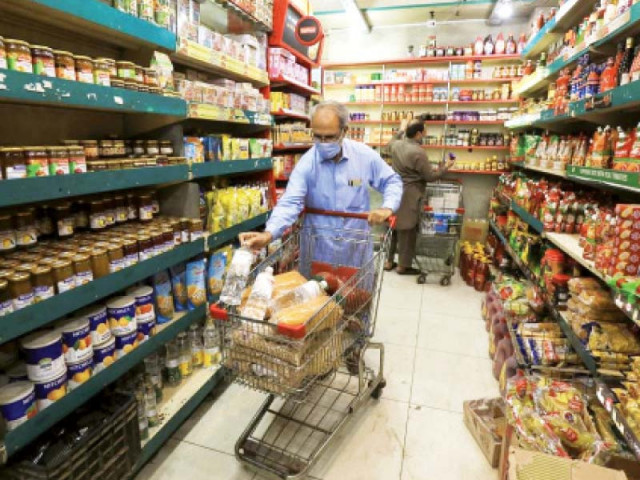Businessmen reject GST increase
Urge govt to control rupee free fall instead, declare economic emergency

The Pakistani business community, on Wednesday, warned the government from increasing the General Sales Tax (GST) from 17% to 18%.
Speaking to the Express Tribune, Pakistan Business Forum (PBF), Vice President Ahmad Jawad said, “We must understand that Pakistan is facing the most difficult set of obstacles it has ever encountered. If the government moves to increase GST from 17% to 18%, we will resist as it is an incredibly destructive and harsh move.”
Instead, the business leader said, “An economic emergency should be declared in the country. The value of the rupee has depreciated by Rs89 under the current government and businessmen and industry owners are on the streets.”
Urging the government to put an end to the free float policy for the dollar, he said, “Investors are not ready to come to Pakistan. The government must implement austerity in its institutions and add the economy to the agenda of the All-Parties Conference scheduled to be held in few days.”
Union of Small and Medium Enterprises (UNISAME) President Zulfikar Thaver explained that, “Politicians and the government authorities need to brainstorm together and revise the policies.”
“The ministries of commerce, industries and production, and planning and development urgently need to revise the industrial import-export policy. It is also necessary to overhaul the industrial policies for export and domestic consumption for industries in consultation with experts to streamline the import of raw and packing material on a priority basis,” suggested Thaver.
“Currently, no import-free list exists as it did under the World Trade Organisation (WTO) and all imports are controlled due to scarce funds. A policy must be framed so as to guide importers about what exactly can be allowed in terms of imports and what isn’t,” he said, adding that, first priority for imports should be afforded to export-oriented industries to enable them to bring in foreign exchange.
Predicting that 2023 would be a tough year for the economy, the PBF VP said, “Pakistan needs to find an alternative to the International Monetary Fund (IMF) and it seems like our political parties have no roadmap for the betterment of the economy.”
Lamenting the dollar’s free float policy impact on the economy he said, “It is obvious that even after the general elections, the new government will also approach the IMF because it is an easy solution.”
“How could the government allow such an unrealistic rupee depreciation?” asked Jawad, adding that, in less than one month, the abrupt fall has already added Rs3.5 trillion to Pakistan’s total debt.
The UNISAME president also urged the State Bank of Pakistan to act fast and ensure that the Exim Bank starts its operations and issues credit guarantees to suppliers or facilitating with escrow accounts.
“The government must also act fast to promote cross-border trade, barter and simple exchange trade to save the economy,” he said.
Published in The Express Tribune, February 8th, 2023.
Like Business on Facebook, follow @TribuneBiz on Twitter to stay informed and join in the conversation.



















COMMENTS
Comments are moderated and generally will be posted if they are on-topic and not abusive.
For more information, please see our Comments FAQ